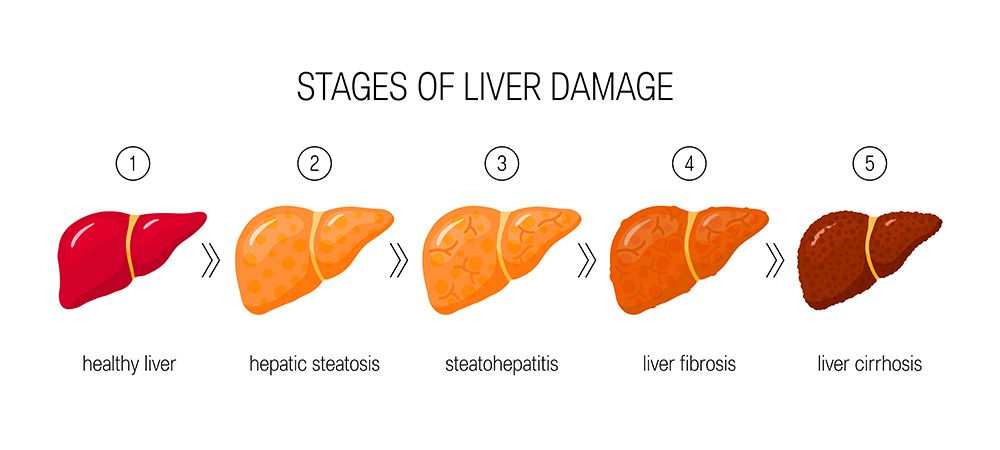
Short-Term And Long-Term Effects Of Alcohol
For most people, alcohol is not a substance of abuse. It is something we use to relax after a long day, to socialize with friends, or to celebrate special occasions like birthdays and anniversaries. In many circles, those who choose not to use alcohol are ridiculed for their abstinence, while those who use it excessively are celebrated as “the life of the party”.
Being the life of the party does not come without a cost, though. Excessive use of alcohol can have far-reaching effects not only on a person’s health, but also on their relationships and financial security.
The Difference Between Alcohol Abuse And Alcohol Addiction
Before we go into how excessive alcohol consumption can affect a person, it is important to make the distinction between alcohol abuse and alcohol addiction. Many people use the two terms interchangeably, although it is inaccurate to do so.
Alcohol addiction is a physical and psychological dependence on alcohol that cannot be controlled. The addicted person feels that they have to continue drinking in order to survive. In some cases, this is accurate: unsupervised withdrawal from alcohol can be extremely dangerous, and even fatal.
Alcohol abuse is any problematic use of alcohol. This encompasses several behaviours, including:
- Use of alcohol that results in violent or aggressive behaviour
- Exceeding the alcohol consumption guidelines laid out by health authorities
- Drinking to the point of becoming physically ill
- Use of alcohol that results in impaired driving or other criminal activity
- Regular episodes of being under the influence of alcohol
While it is fair to say that people with alcohol addictions have, at some point, engaged in alcohol abuse, the reverse is not always true. Many people who abuse alcohol are able to control their consumption. They may limit their drinking to certain days or occasions, and they do not experience cravings or withdrawal symptoms while sober.
They can still suffer some of the effects of excessive alcohol consumption, though, such as adverse health events and relationship breakdowns.
How Much Alcohol Is Too Much?
The Canadian Centre on Substance Use & Addiction has compiled some recommendations for the safe use of alcohol. These include the following:
- Adults who were assigned female at birth should not exceed a maximum of two drinks on any one day, for a total maximum of 10 drinks per week
- Adults who were assigned male at birth should not exceed a maximum of three drinks on any one day, for a total maximum of 15 drinks per week
- People up to the age of 24 should limit consumption to one or two drinks at a time, no more than twice a week
- No alcohol should be consumed if you are driving a vehicle or operating machinery
- If you are using prescription medication, speak with your doctor or pharmacist about alcohol use
- Avoid consuming more than two drinks in a three-hour period
- Your own personal risk factors may reduce your limits – for example, your body weight, age, and existence of medical conditions
What does biological sex have to do with consumption guidelines?
Those who are biologically female differ in several respects to those who are biologically male. Females generally have a lower body weight, but their body fat percentage tends to be higher. Since alcohol is stored in fat cells, this could put biological females at higher risk of long-term health effects. In addition, males produce higher amounts of alcohol dehydrogenase enzyme, which aids in breaking down alcohol.
Short-Term Effects Of Alcohol
In most adults, the body is capable of metabolizing around one unit of alcohol per hour. Consuming anything over and above that can lead to intoxication. While intoxicated, you may experience the following effects:
- Impaired motor skills, which can result in accidental injury or death
- Impaired judgment and lowered inhibitions
- Inability to concentrate
- Mood swings and the potential for aggression or violence
- Elevated blood pressure
- Nausea and vomiting
- Loss of consciousness
Except in cases of alcohol poisoning, these effects usually pass when the body has metabolized all of the alcohol. However, during the period of intoxication, your risk of injury or death is significantly higher than it is while you are sober.
Long-Term Effects Of Alcohol
If you regularly consume large amounts of alcohol over a sustained period of time, you could be at risk of serious long-term effects, including the following:
- Liver disease, including fatty liver, hepatitis, and liver fibrosis
- Various cancers, including breast, esophageal, colorectal, and throat
- Heart complications, such as cardiomyopathy, stroke, and irregular heart beat
- Cognitive effects, including learning difficulty, memory loss, and limited attention span
- Digestive complaints, including ulcers and pancreatitis
- Reproductive health problems, such as erectile dysfunction, irregular menstruation, and reduced fertility
The Dangers Of Alcohol Withdrawal
If you are concerned about the long-term effects of your alcohol consumption, it is not too late to stop. Some of the effects listed above will start to reverse when alcohol use is discontinued. However, alcohol withdrawal can have serious effects when attempted without medical supervision. The safest way to withdraw is to check in to a detox facility, where you will be under the care of medical professionals who can manage and treat withdrawal symptoms as they arise. At the very least, you should ensure that during your withdrawal, you are with somebody who can get medical care to you should the need arise.
The Use Of Alcohol During Pregnancy
There is a misconception that it is safe for pregnant women to have the occasional glass of wine. However, no safe amount of alcohol during pregnancy has been established. The medical community therefore recommends complete abstinence during pregnancy, and in those who are intending to become pregnant. However, if you were consuming alcohol prior to finding out that you were pregnant, there is no need to worry. If you discontinue all alcohol use, you can still have a safe and healthy pregnancy.
If you consume alcohol throughout your pregnancy, your baby could be born with fetal alcohol syndrome. This can result in a low birth weight, slow growth, heart defects, intellectual disability, poor motor skills, and more.
Alcohol And Lactation
According to the Centers for Disease Control & Prevention, alcohol can be passed from a parent into the breast milk they produce. One standard drink per day may be safe as long as the parent does not nurse within two hours of consuming that drink.
Getting Help For Alcohol Addiction
If you are concerned about your alcohol consumption or that of a loved one, it is never too late to seek help. At 1000 Islands Rehab Centre, we will create a alcohol addiction treatment program that is tailored to your unique needs and circumstances. As a top addiction rehab we will take care of you at all stages of your recovery, from detox right through to a comprehensive aftercare program for your post-rehab days. To find out more, or to book your stay, give us a call.



